29 service members awarded Purple Hearts for brain injuries in Iran attack
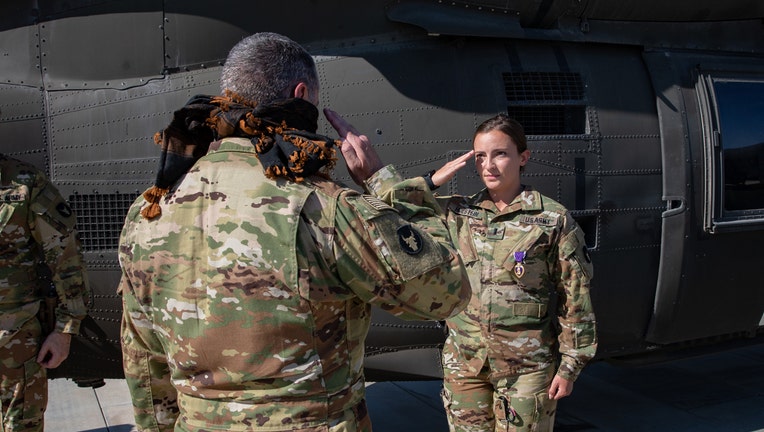
1st Lt. Abigail Holstein salutes Col. Greg Fix, brigade commander for the 34th Expeditionary Combat Aviation Brigade, after being presented with the Purple Heart medal for her injuries sustained during the theater ballistic missile attacks at Al Asad
WASHINGTON (AP) - Six Army soldiers who were injured in a ballistic missile attack in Iraq in January have been awarded Purple Hearts, and 23 others have been approved for the award and will get them later this week, U.S. Central Command said Monday. Navy Capt. Bill Urban said the awards were approved by Lt. Gen. Pat White, the top U.S. commander in Iraq, following a review.
About 110 U.S. service members were diagnosed with traumatic brain injuries after the Iranian ballistic missile attack at al-Asad Air Base in Iraq on Jan. 8. More than a dozen missiles struck the base in an attack that Iran carried out as retaliation for a U.S. drone strike in Baghdad that killed Tehran's most powerful general, Qassem Soleimani, on Jan. 3. Troops at al-Asad were warned of an incoming attack, and most were in bunkers scattered around the base.
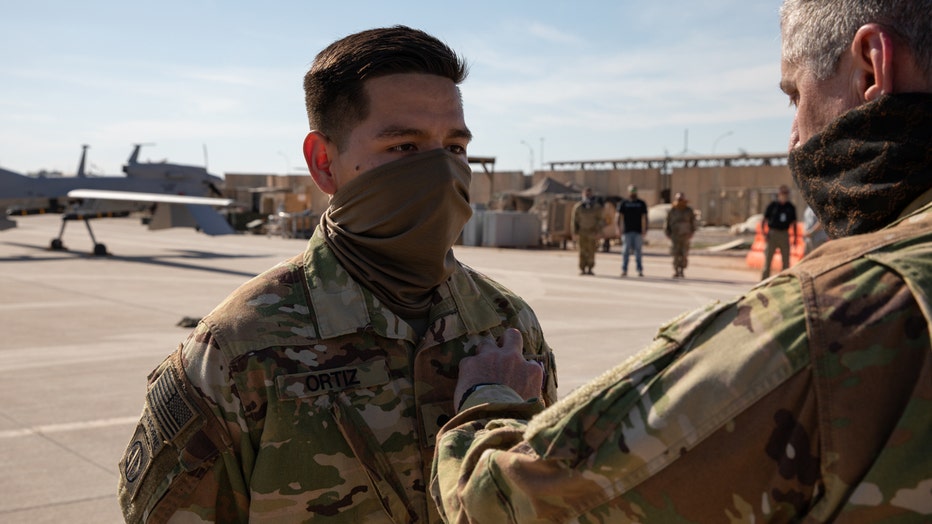
Col. Greg Fix (right) presents Spc. Jose Ortiz with the Purple Heart medal, May 3, 2020, for his injuries sustained during the ballistic missile attacks at Al Asad Air Base, Iraq, on January 8, 2020. (U.S. Army photo)
Initially, commanders and President Donald Trump said there were no injuries during the attack. But after several days, troops began exhibiting concussion-like symptoms and the military started evacuating some from Iraq. A majority of those injured were eventually able to return to work; others were hospitalized or returned to the U.S.
Trump triggered criticism when he dismissed the injuries as "not very serious" and described them as headaches and other things.
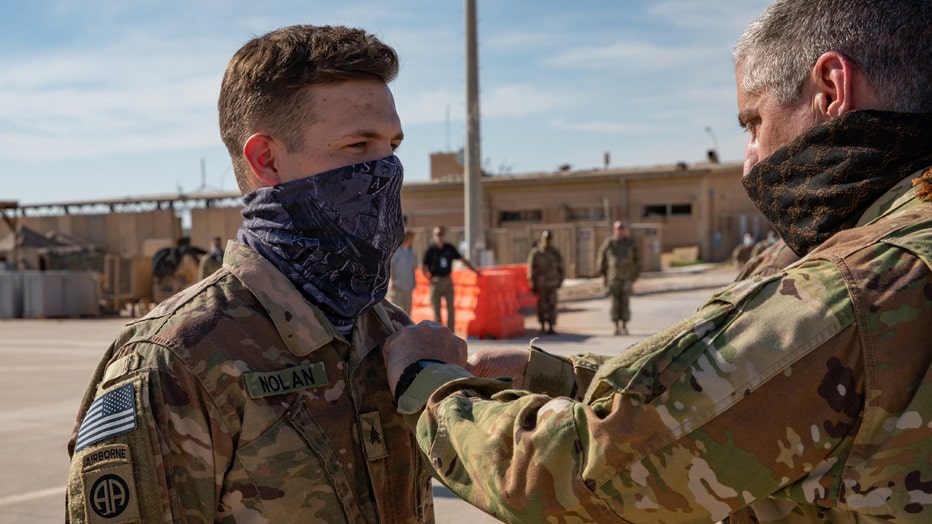
Sgt. Ryan Nolan is presented the Purple Heart medal, May 3, 2020, for his injuries sustained during the theater ballistic missile attacks at Al Asad Air Base, Iraq, on January 8, 2020. (U.S. Army photo)
Traumatic brain injury, or TBI, became a bigger concern for the military in recent years as more and more troops in the Iraq and Afghanistan wars began suffering from head injuries from bombings and other explosions.
Medical science improved its understanding of its causes and effects on brain function. It can involve varying degrees of impairment of thinking, memory, vision, hearing and other functions. The severity and duration of the injury can vary widely.
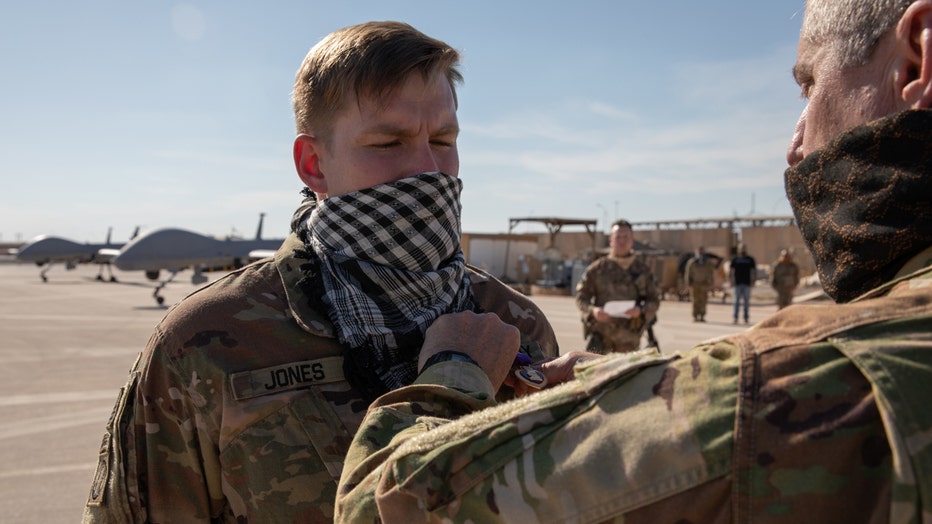
Spc. Robert Jones is presented the Purple Heart medal, May 3, 2020, for his injuries sustained during the theater ballistic missile attacks at Al Asad Air Base, Iraq, on January 8, 2020.(U.S. Army photo)
According to Urban, the first six Purple Hearts were given to soldiers in Iraq and Kuwait. The other soldiers are in the United States and will get their awards in the coming days. He said 80 service members were considered for the awards, and each recommendation package submitted by unit leaders was evaluated by a review board based on Army and Air Force regulations.
Urban said that a TBI diagnosis doesn't automatically qualify a service member for a Purple Heart.
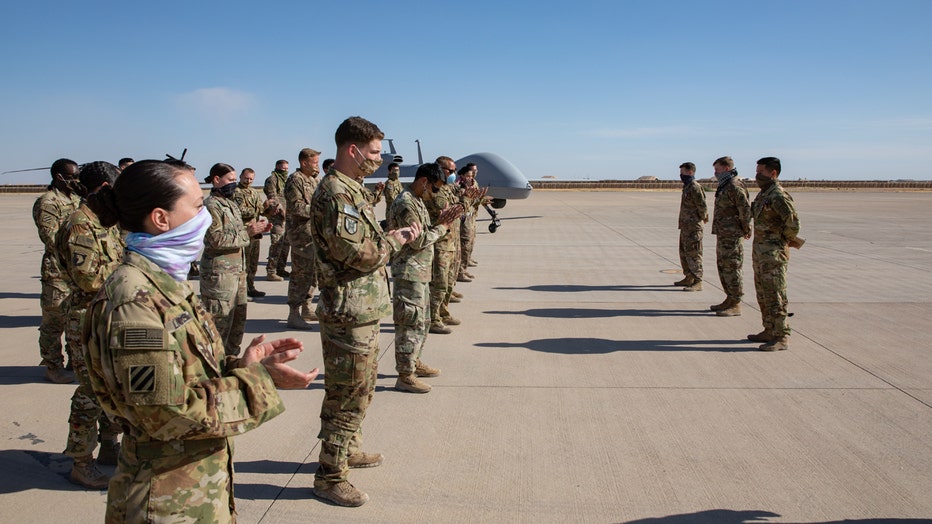
Members of Delta Company, 82nd Aviation Regiment recognize fellow service members as they were presented the Purple Heart medal, May 3, 2020. The medals are for injuries the soldiers sustained during the ballistic missile attacks at Al Asad Air Base,
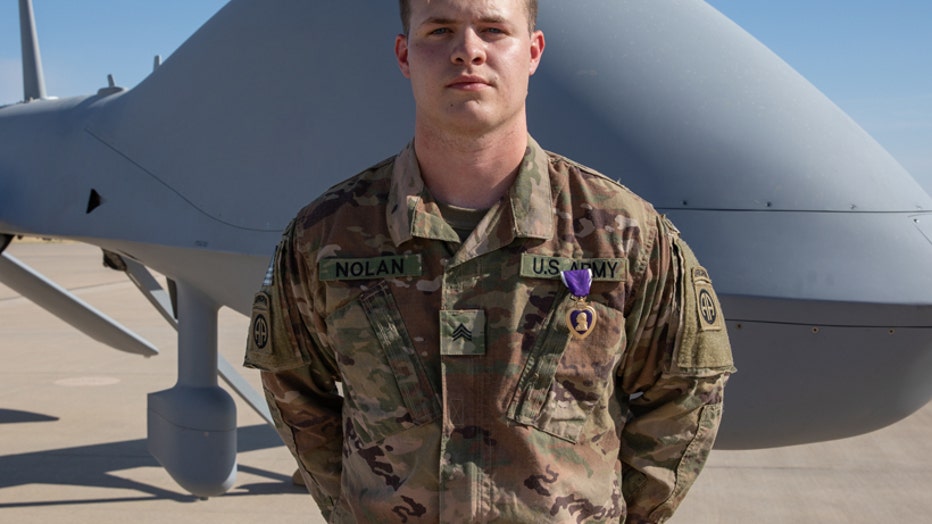
Sgt. Ryan Nolan was presented the Purple Heart on May 3, 2020, for his injuries sustained during the theater ballistic missile attacks at Al Asad Air Base, Iraq, on January 8, 2020. (U.S. Army photo)

